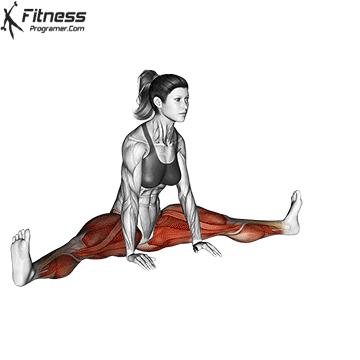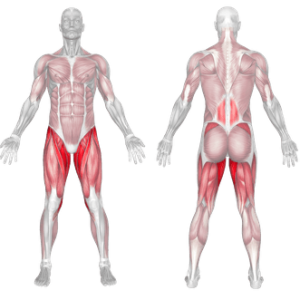How to: Upavistha Konasana

Dynamic stretching consists of active movements. It is usually done before a workout to help warm up your muscles and increase your heart rate. Move slowly, stop and repeat, dig a little deeper each time and improve your range of motion. Pre-workout dynamic stretching improves circulation, prepares your muscles for movement, and temporarily increases your range of motion.
Static stretching, more commonly done at the end of a workout when your muscles are warm, is when stretches are held in place for a certain period of time, not moving. Static stretching is the most effective form of stretching for loosening up your muscles, joints, ligaments, and tendons, while also improving flexibility and range of motion. Static stretching requires you to move a muscle to the end of its range of motion and maintain this position for 20 to 45 seconds. Repeat this 2 to 3 times each.
Upavistha Konasana Benefits
- The Upavistha Konasana is a challenging yoga pose. The asana forms an angle that gives a great stretch to the body, especially the lower body. It stretches your legs, hips, shoulders and groin muscles, strengthens your back and improves your posture. Stretching the body increases the flexibility of the muscles and reduces the risk of injury and prevents muscle soreness.
People with herniated disks should consult a doctor before performing this pose. This pose is also not suitable for Individuals with back, hips, knees and hamstring injuries. Therefore, in case of a tear in your groin and hamstring area, it is recommended that you don’t practice the Wide Angle Seated Forward Bend Pose.
Muscles Worked in the Upavistha Konasana

